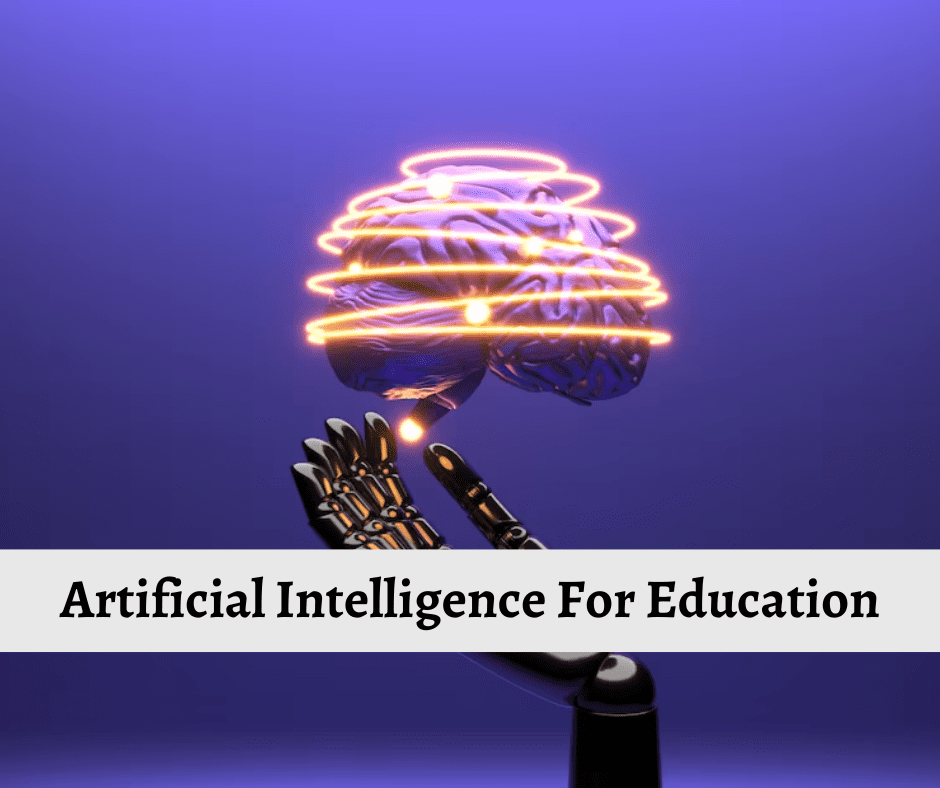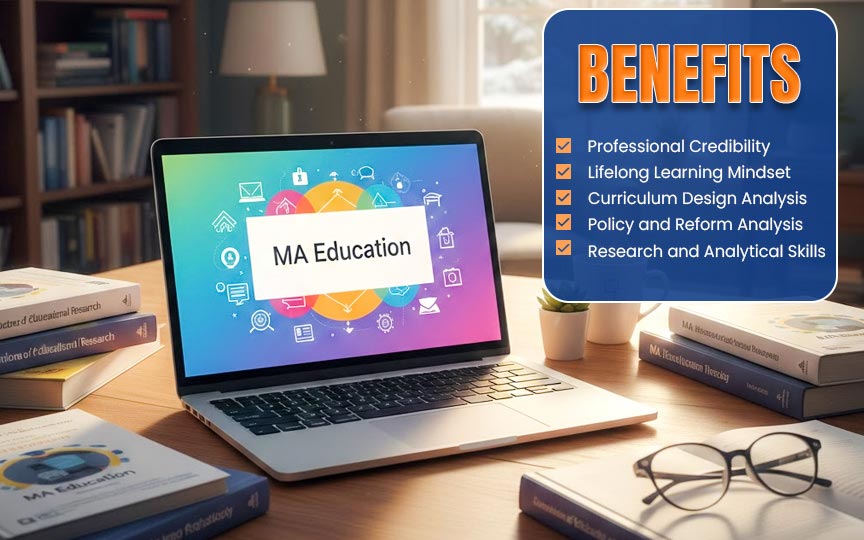AI is not just about robots taking over the world. It’s about breaking down complex tasks and making them simpler. And in education, it’s no different! AI has paved the way for personalized learning experiences and it’s high time we explore its potential. AI is the field of computer science that deals with creating intelligent machines capable of mimicking human intelligence. Yes, you heard it right, we’re talking about machines that can think and learn! Now, let’s take a moment to appreciate the abundance of AI applications gracing our lives. From Siri’s sassy responses on your smartphones to self-driving cars that seem straight out of a sci-fi movie, AI has found its way into our daily existence. In the healthcare sector, AI assists doctors in diagnosing diseases, while in finance, it crunches numbers to detect fraudulent activities. So, you see, AI is not just a fancy term thrown around by tech enthusiasts. It’s already here, making our lives easier and more efficient.
Now that we’ve covered the basics, let’s shift our focus to AI’s role in education.
AI’s Potential to Revolutionize Education
A Manual for Students Artificial intelligence (AI) is transforming many industries and has become a crucial aspect of our lives in the digital age. This change is also seen in education. AI’s importance in education today cannot be emphasized for students. One of the key benefits of AI in education is its ability to personalize the learning experience.
Imagine having a virtual instructor who can adjust to your unique learning style, help you understand difficult topics, and give you feedback that is tailored to your needs. Really nice, huh? But there’s still more! Learning platforms with AI capabilities can examine enormous amounts of data to identify the subjects in which students most struggle. This guarantees that no student is left behind by enabling educators to step in at the appropriate moment. It’s similar to having a personal coach encouraging you to win the battle in the classroom.
AI in Education
Artificial Intelligence in Education, artificial intelligence (AI), the mind behind chatbots like Alexa and Siri. However, did you realize that the field of education has recently been affected by this technology? Yes, people, that’s right!
AI has tricked its way into our beloved academic institutions. But do not be alarmed; this invasion may perhaps be a blessing in disguise. advantages of AI in the classroom? I’ll count the ways, please! We can say goodbye to the strict one-size-fits-all method in the classroom thanks to AI. It can provide individualized attention and support by customizing learning experiences for each student. You won’t have to worry about getting lost in an ocean of people or slipping behind as they overtake you.
AI ensures that each learner gets the same amount of guidance and focus. Not to mention the arrival of AI-powered learning systems! These wizards of the digital age have the power to fundamentally alter the way we learn.
Artificial Intelligence has the ability to analyze data on student learning patterns and provide prompt feedback. This removes the requirement of having to wait weeks to find out whether or not you solved a math equation correctly. Prompt feedback means prompt advancement!
Thus, my curious readers, the idea of using AI in education is becoming real. It is gradually advancing in our classrooms, bringing with it a mixed bag of advantages and difficulties.
Now that we have understood the importance of AI in education and how it helps students, let’s get into some of the AI-enhanced learning platforms where students can add more skills.
There are several excellent AI learning tools for students. Here are descriptions of some of the best ones:
1. Coursera: Coursera offers a wide range of AI and machine learning courses from top universities and institutions. It provides both free and paid courses, allowing students to learn at their own pace and earn certificates.
2. edX: Similar to Coursera, edX offers AI courses from universities and colleges worldwide. It provides a mix of free and paid courses, along with the option to pursue MicroMasters or Professional Certificate programs.
3. Udacity: Udacity is known for its nano degree programs in AI and machine learning. Students can gain practical skills through hands-on projects and personalized mentorship.
4. TensorFlow: Google’s TensorFlow offers comprehensive resources, including documentation, tutorials, and online courses, making it an excellent choice for students looking to delve into deep learning and AI development.
5. PyTorch: PyTorch is a popular deep-learning framework with extensive documentation and tutorials. It’s a preferred choice for students interested in research and building neural networks.
6. Fast.ai: This platform provides free deep-learning courses with a focus on practical applications. It’s perfect for students who want to learn AI quickly and effectively.
7. IBM Watson Studio: IBM’s Watson Studio is a cloud-based platform that offers tools for data science and AI development. It’s a great choice for students interested in AI and data analysis.
8. Kaggle: Kaggle is a data science and machine learning community that offers competitions, datasets, and notebooks. It’s an ideal platform for hands-on learning and honing practical AI skills.
9. DeepAI: DeepAI provides a collection of AI tools and resources, including AI models, research papers, and educational content. It’s a valuable resource for students and researchers.
10. AI4ALL Open Learning: AI4ALL offers a free online platform with AI and machine learning resources, making it accessible to students interested in AI education and diversity in the field. These tools cater to various aspects of AI learning, from foundational knowledge to advanced research and application. Students can choose the ones that align best with their interests and goals.
11. Grammarly: While known for its grammar and spell-checking, Grammarly also provides insights and feedback on writing, which can be helpful for students and educators.
12. Quillionz: Quillionz is an AI tool that generates questions from text content, which can be useful for creating assessments and quizzes.
13. Zoho Books: Zoho Books is an accounting software that uses AI to streamline financial processes for educational institutions.
14. Netex Learning: This platform uses AI to create and deliver adaptive and personalized learning experiences for students.
15. Brainly: Brainly is a platform where students can ask questions and get answers from a community of users, and AI helps match questions to potential answers.
16. Khan Academy: Khan Academy uses adaptive learning powered by AI to help students practice and learn at their own pace.
17. Blackboard Learn: Blackboard’s LMS uses AI for predictive analytics, content recommendations, and chatbot-based support.
18. Pearson’s AI Products: Pearson offers AI-driven educational products that focus on assessment, adaptive learning, and student performance analytics.
19. ScribeSense: ScribeSense is an AI tool that can convert handwritten notes and equations into digital formats, making it useful for math and science education.
20. Duolingo: Duolingo employs AI for language learning and offers a gamified and personalized approach to learning new languages.
The Future of AI in Education
One of the key areas where AI is set to make a big impact is in collaboration. Imagine a world where students from different parts of the globe can work together on a project without the limitations of time zones or physical barriers.
AI-powered platforms can facilitate this by providing real-time communication and collaboration tools. It’s like having a virtual classroom without the boring school uniforms! But that’s not all. AI is also set to revolutionize assessment methods. No more standardized tests that only measure a small portion of a student’s abilities.
With AI, assessments can be more personalized and adaptive. It can take into account a student’s individual learning style and provide tailored feedback. It’s like having a virtual tutor that knows exactly what you need to improve on.
Challenges and Things to Think About
Although AI has many advantages, there are drawbacks and things to think about. To optimize the advantages of AI in education, it is imperative to tackle critical issues such as data security and privacy, potential bias in AI algorithms, and the requirement for teacher training to use AI tools effectively.
As much as we all love technology and its ability to revolutionize various sectors, implementing AI in education is not a piece of cake. There are a couple of challenges we need to tackle first.
First and foremost, let’s talk about the COST.
Implementing AI in education can be quite expensive. It’s not like you can just go to the dollar store and stock up on AI-powered teaching tools. No, my friend, this is going to cost a pretty penny.
The issue of accessibility.
Not every school or student has the means to afford these fancy AI gadgets. So yeah, there’s that. But hey, cost and accessibility aren’t the only roadblocks we face here.
There’s also the matter of privacy and ethical concerns.
We live in a world where personal data is like gold, and with AI in the mix, the stakes get even higher. Who’s to say our students’ information won’t fall into the wrong hands?
And what about the ethical implications?
Can AI truly replace human teachers? The debate is ongoing, my friends. So, as much as we’d love to dive headfirst into the world of AI in education, we need to be aware of these challenges. Yes, the potential is there, but we must proceed with caution. After all, education is not just about cramming information into young minds; it’s about shaping future generations. And we want to make sure we do it right, without breaking the bank or compromising privacy and ethics.
Conclusion
AI in education has the potential to revolutionize the way we learn and teach. With AI-powered learning platforms, students can receive personalized tutoring and adaptive learning experiences. The collaboration and assessment methods are also enhanced with the help of AI.
However, implementing AI in education comes with its own set of challenges, including cost, accessibility, and privacy concerns. As we embrace the future of AI in education, it’s important to address these challenges and ensure that the benefits outweigh the risks.
With continued advancements and innovation, AI has the power to create a more engaging and effective educational experience for students worldwide. So, let’s buckle up and get ready for an exciting AI-driven journey in the realm of education.
Founded in 2006, Mangalayatan University is establishing notable standards in education through a range of programs such as (program names). The university holds the distinction of being UGC Entitled, AICTE Approved, and boasts an impressive NAAC A+ Gradation. With a collection of awards, including the recognition as an Outstanding University for Teaching and Learning and a position among the top 100 Universities in India by ASSOCHAM, Mangalayatan outpaces traditional Indian Universities. Adding to its achievements, the university has devised a unique pedagogy of learning and possesses state-of-the-art infrastructure. The program Bachelor of Computer Application is available through both online and regular modes of delivery.
References :
https://www.iu.org/blog/ai-and-education/best-ai-tools-for-students/
https://www.aeccglobal.co.id/blog/best-ai-tools-for-students/
https://www.aeccglobal.co.id/blog/best-ai-tools-for-students/







